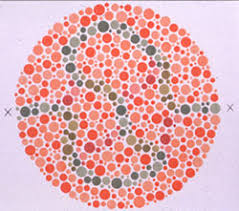Anyhow it just looks nice for CCSVIers also...
Biogen Idec Inc. has begin human testing of an experimental drug, dubbed BIIB033, that it hopes will take the revolutionary step of repairing some of the damage done by multiple sclerosis.
Although it is a major step to begin testing in humans, drug development is always risky and it will take years to measure the drug's effectiveness and potential side effects.
Multiple sclerosis, or MS, is a chronic, inflammatory condition that occurs when the body attacks its own myelin, the protective insulation surrounding the nerve fibers, or axons, in the central nervous system. The debilitating disease affects an estimated 400,000 people in the U.S., according to the National MS Society, but current treatments only aim to slow the disease's progression and cannot help repair damage.
Research that focuses on ways to help the body regenerate myelin is growing and scientists around the world are taking several different approaches. Damage to myelin can distort or block messages carried by axons and result in a wide variety of MS symptoms such as vision problems, limb numbness and paralysis.
BIIB033 is an antibody designed to turn off Lingo-1, a molecule that the company believes prevents myelin production in adults after axons are well covered. Blocking Lingo-1 may encourage myelin regeneration, something that occurs in healthy adults, after damage from MS occurs.
The antibody has been shown to be effective in mouse models that are accepted as being useful for mimicking the properties of MS.
The small Phase I study will include 64 healthy volunteer adults in the Netherlands, with the main goal of assessing safety and tolerability, and is expected to be completed in 2011.
The placebo-contolled study will give patients a single dose of the drug and different groups will get different amounts, a standard practice in such early trials that helps determine the optimal dose for later investigation.
The secondary goals of the trial relate to how the body processes the drug and there is no measure of its effectiveness, which is not surprising in such an early study that doesn't actually include MS patients.
MS is an attractive area of drug makers as its often requires lifelong treatment, and MS drugs brought in more than $8.7 billion in 2009 revenue worldwide, according to projections from Bernstein Research.
Biogen is mostly focused on selling MS treatments, including Tysabri and Avonex, which are expected to bring sales of more than $3 billion for 2009.
Source: Dow Jones Newswires (c) 2010 Dow Jones & Company, Inc. (27/01/10)
found at http://www.msrc.co.uk/index.cfm?fuseact ... ageid=1397


